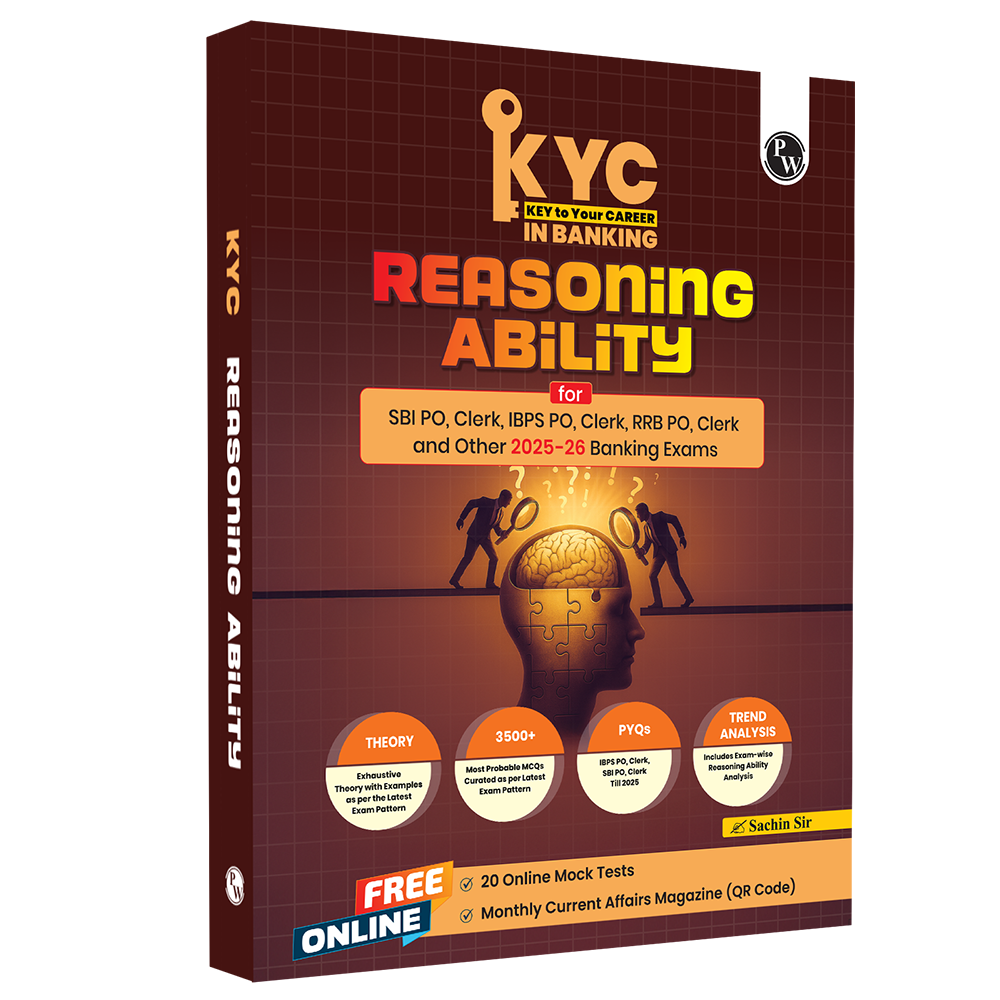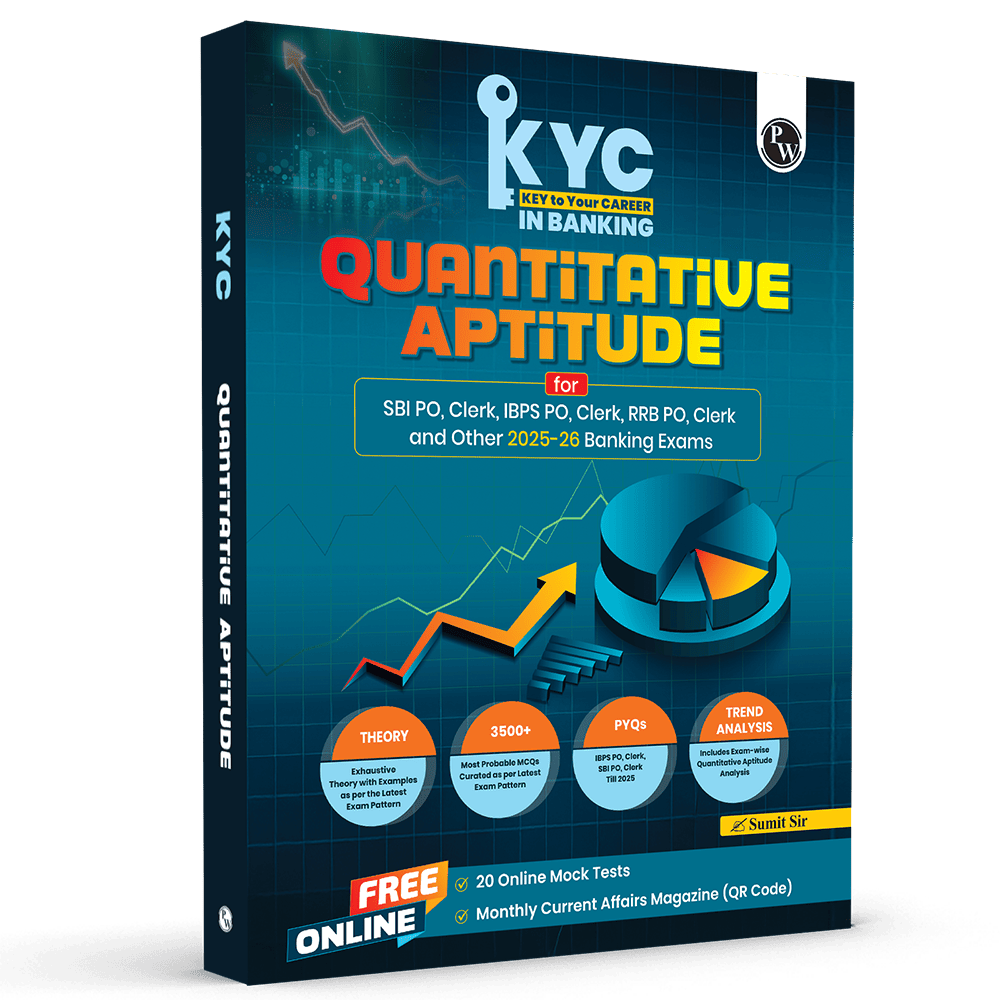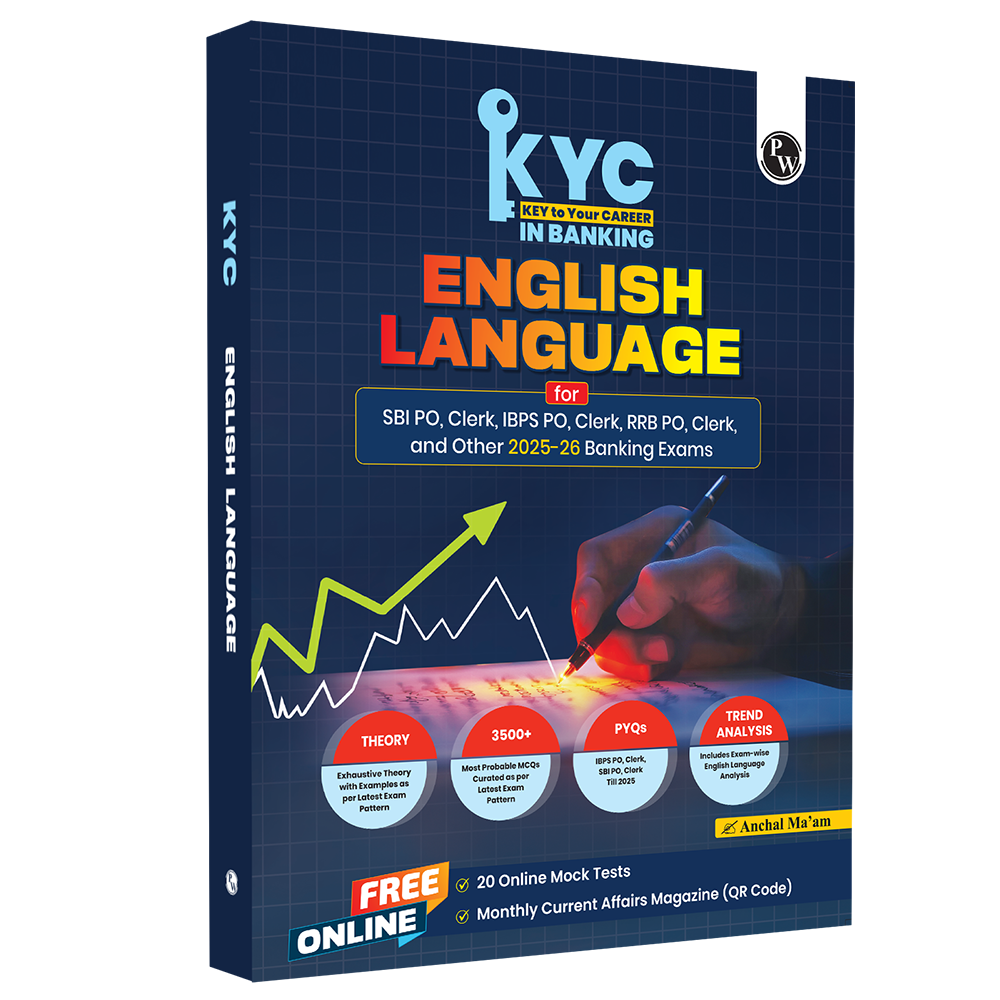Logical Reasoning Topics for Bank Exam Success

Logical Reasoning Topics for Bank Exam Success:- Logical reasoning is a crucial part of banking exams, and it plays an important role in helping you score well. It tests your ability to think clearly, solve problems, and understand patterns quickly. To do well in the reasoning section, it's important to focus on the right reasoning topics for bank exams.
By understanding key reasoning topics and practising regularly, you can improve your skills. Some of the common reasoning topics for bank exams include puzzles, syllogism, blood relations, and coding-decoding. This reasoning topics list will help you know which areas to focus on. Check out the below article for the list of the Logical Reasoning Topics.
What is Reasoning Ability for Bank Exams?
Reasoning ability for bank exams is an important skill that tests how well you can think logically and make decisions quickly. Bank exam reasoning questions are designed to check how you analyse information and find solutions.
Check out - Books for Banking Exams Preparation
This section includes different types of reasoning, such as logical, verbal, and non-verbal reasoning, which help test your problem-solving and thinking skills. To do well in this section, it’s important to practice often, as this will help you answer questions more quickly and accurately. Improving your reasoning ability for bank exams will make you more confident and prepared for the test.
|
Stage |
Weightage (Expected) |
|
Prelims |
35% |
|
Mains |
30% (combined with Computer Knowledge) |
Bank Syllabus for Reasoning
Check out the Bank Reasoning Syllabus from the below table:-
|
Reasoning Ability Section |
Topics/Sub-topics |
|
Non-verbal Reasoning |
Mixed Series Counting Figures Mirror Image & Water Image Analogy Classification Number Series Cube and Dice, etc. |
|
Verbal Reasoning |
Distance & Directions Alphabet Test Blood Relations Calendars Clock Reasoning Data Sufficiency Decision Making Input-Output Puzzle Seating Arrangement |
|
Miscellaneous Logical Reasoning |
Coding-Decoding Input-Output Missing Number Cause & Effect Venn Diagram Syllogism Coded Inequalities Order & Ranking Tabulation Statements |
Weightage of Reasoning Ability for Bank Exams
Check out the Weightage of Reasoning Ability for Bank Exams from the below table:-
|
Exam Name |
Stage |
No. of Qs. of Reasoning |
Marks |
Reasoning Section Weightage |
|
IBPS Clerk |
Pre |
35 |
35 |
35% |
|
Mains |
50 |
60 |
30% |
|
|
IBPS PO |
Pre |
35 |
35 |
35% |
|
Mains |
45 |
60 |
30% |
|
|
SBI Clerk |
Pre |
35 |
35 |
35% |
|
Mains |
50 |
60 |
30% |
|
|
SBI PO |
Pre |
35 |
35 |
35% |
|
Mains |
40 |
50 |
25% |
|
|
IBPS RRB Clerk |
Pre |
40 |
40 |
50% |
|
Mains |
40 |
50 |
25% |
|
|
IBPS RRB PO |
Pre |
40 |
40 |
50% |
|
Mains |
40 |
50 |
25% |
Check out -
Logical Reasoning Topics for Bank Exam Success
Understanding the key areas for reasoning preparation in bank exams is essential to develop an effective strategy. The following reasoning topics list is important for your preparation and will help you with the reasoning questions confidently:
-
Inequality
-
Focus on understanding the relationship between symbols like >, <, >=, <=, =.
-
Practice both direct and coded inequality questions.
-
Always pay attention to the priority order of symbols when solving these questions.
-
Use logical reasoning to decode the meaning of the symbols and their combinations.
-
Syllogism
-
Syllogism questions are high-scoring and relatively easy to understand.
-
Try to solve problems without using a pen and paper to improve speed and accuracy.
-
Pay attention to different types, especially reverse syllogism, which is becoming more common.
-
Practice using basic syllogism principles to answer complex problems quickly.
-
Coding-Decoding
-
Questions are based on both traditional and new patterns, so familiarise yourself with various formats.
-
Learn the basic rules of coding (e.g., letter shifting, number-letter codes) before solving.
-
Practice decoding coded information quickly to improve your score.
-
Use shortcut methods like letter-to-number mappings to save time.
-
Puzzle and Seating Arrangement
-
Practice solving puzzles related to seating arrangements, such as linear, circular, and hexagonal seating.
-
Learn how to arrange data systematically (tables, circles, lines, etc.) to visualise the problem clearly.
-
Use reasoning tricks like elimination and deduction to arrive at the correct answers faster.
-
Avoid getting stuck on a single puzzle; move on to the next if you're unable to solve it within a time limit.
Read More - Is PW KYC Books Good for Banking Exam Prep?
-
Data Sufficiency
-
This section tests whether the provided information is enough to answer a question.
-
Carefully read each statement and question to understand if the data is sufficient.
-
Practice problems to improve your ability to analyse and determine sufficiency quickly.
-
Work on questions with multiple statements to refine your judgement on data sufficiency.
-
Logical Reasoning
-
Questions are based on assumptions, cause and effect, conclusions, and inferences.
-
Understand the core concepts like the path of action and strength of arguments to solve problems effectively.
-
These questions are usually of moderate difficulty but are crucial for scoring well in the reasoning section.
-
Regular practice will help you develop the right thinking patterns to answer them quickly.
-
Verbal Reasoning
-
This topic includes questions based on blood relations, directions, and calendars.
-
Regular practice will improve your ability to solve questions involving logical statements and relationships.
-
Focus on improving your ability to decode and relate statements logically.
-
Try to improve your time management as this section often requires quick thinking and decision-making.
How to Prepare for Logical Reasoning Topics for Bank Exam?
1. Start with Good Books
Begin with a few reliable reasoning books, such as Physics Wallah’s logical reasoning book. This book explains all the basic concepts clearly, helping you build a strong foundation before you solve problems.
2. Practice Every Day
Try to practice reasoning for at least one hour every day. The more you practice, the better you’ll become at solving problems quickly and accurately. Regular practice will help you feel more confident.
3. Understand the Topics First
Before solving questions, take time to understand each reasoning topic like coding-decoding, blood relations, seating arrangements, and puzzles. Understanding the concepts will make it easier for you to solve problems.
4. Focus on Puzzles and Seating Arrangements
Puzzles and seating arrangements are common in reasoning exams. Spend extra time practising these types of questions. Try to organise the information well (using tables, circles, or lines) to solve them more efficiently.
5. Work on Data Sufficiency
Data sufficiency questions test your ability to decide if the information given is enough to solve the problem. These can be tricky, so practice solving them regularly. Always ask yourself if you have enough information to find the answer.
6. Solve Mock Tests and Previous Papers
Take mock tests and solve previous years’ question papers. They give you a feel of the real exam and help you get used to the time limits. They also show you the types of questions that are commonly asked.
7. Improve Your Speed and Accuracy
In the exam, you need to be fast and accurate. Practice solving questions quickly while making sure your answers are correct. Timed practice will help you work faster and more efficiently.
Read More - How to Crack Bank Exam in First Attempt: Tips & Strategies
Reasoning for Bank Exams: Tricks and Techniques
To improve your score and boost your chances of selection, here are some simple tips for tackling the Reasoning Section in Bank Exams:
-
Practice Mental Calculations: Try to do basic calculations in your mind. This helps speed up your problem-solving ability in reasoning topics for bank exams and saves time during the exam.
-
Elimination Method: If you’re unsure about an answer, eliminate the clearly incorrect options first. This increases your chances of picking the correct one when attempting bank exam reasoning questions.
-
Understand Negative Marking: Know the negative marking rules and develop a strategy to attempt questions carefully. This will help you avoid unnecessary mistakes when tackling reasoning ability for bank exams.
-
Look for Patterns: Many reasoning problems involve patterns or sequences. Pay attention to these details in your reasoning topics list, as they can make solving the questions much easier.
-
Backwards Reasoning: If you're stuck, try working backwards. Start with the answer choices and see which one fits the given information. It can save time and lead to the right solution in banking reasoning topics.
With the SBI Clerk exam scheduled for the second week of February (tentative) and the SBI PO for the fourth week (tentative), aspirants must make the most of the remaining time. These exams are not just about knowledge but also about smart preparation and time management. To stay ahead, it’s essential to focus on solving mock papers, practising key concepts, and revising systematically. To make your preparation smoother, explore PhysicsWallah’s curated books, tailored to cover every important topic for both SBI Clerk and SBI PO exams.
Books for SBI Clerk and SBI PO Exams Preparation
| SBI Clerk and SBI PO Books for 2025 Exams | Buy Now |
|
All in One SBI Clerk Prelims and Mains 2025 Exams |
Link |
| 20 SBI Clerk Prelims & Mains Previous Year Solved Papers For 2025 Exam | Link |
|
20 SBI PO Prelims & Mains Previous Year Solved Papers For Exam 2025 |
Link |
FAQs
1. What is Reasoning Ability in Bank Exams?
Reasoning Ability in bank exams tests how well you can think logically and solve problems. It includes topics like logical reasoning, verbal reasoning, and non-verbal reasoning.
2. How much time should I dedicate to Reasoning in my daily preparation?
You should spend about 1 hour every day practising reasoning. Regular practice helps you improve your skills and speed in answering reasoning questions.
3. Which topics are important for Reasoning in Bank Exams?
Important topics include puzzles, seating arrangements, coding-decoding, blood relations, data sufficiency, syllogism, and direction sense. These topics are commonly asked in both prelims and mains.
4. How can I improve my speed in solving Reasoning questions?
To improve speed, practice regularly. Start with easier questions, then gradually move on to harder ones. Timed practice and mock tests help you improve your speed.
5. How important are Mock Tests for Reasoning practice?
Mock tests are very important. They help you get used to the exam environment, manage your time, and identify areas where you need improvement.










